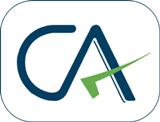Agile Pro-S refers to an advanced approach within Agile methodologies, focusing on efficiency, adaptability, and continuous improvement in project management and software development. It emphasizes collaboration between cross-functional teams, ensuring quick responses to changes in project requirements. Agile Pro-S enhances productivity by promoting iterative development, allowing for continuous feedback and refinement of processes. It ensures customer satisfaction by delivering high-quality products in shorter cycles, adapting to evolving market needs. Teams work in sprints, completing tasks in a time-boxed manner to achieve incremental progress. Agile Pro-S incorporates Scrum, Kanban, and Lean principles for streamlined workflow and optimized resource allocation. Transparency and accountability are key aspects, ensuring every team member understands their role and contributions. Daily stand-up meetings help teams align their tasks and identify potential roadblocks early. Agile Pro-S encourages a test-driven development approach, reducing defects and improving software reliability. Continuous integration and deployment practices allow for rapid updates and quick bug fixes. Customer feedback is integrated at every stage, enhancing user experience and product relevance. Agile Pro-S fosters innovation by encouraging experimentation and learning from failures. It helps businesses stay competitive by accelerating time-to-market for new features and products. The approach minimizes risks by detecting issues early and making data-driven decisions. Agile Pro-S supports remote and distributed teams, enabling seamless collaboration using digital tools. Agile frameworks like SAFe (Scaled Agile Framework) help large enterprises implement Agile at scale efficiently. Prioritization of tasks is done based on business value, ensuring maximum return on investment. Agile Pro-S promotes a culture of continuous learning, helping teams adapt to industry changes. By breaking down complex projects into manageable units, it prevents burnout and improves work-life balance. Agile Pro-S is widely used in software development, finance, healthcare, and manufacturing industries. It aligns with DevOps practices to ensure smooth integration of development and operations. Agile coaching and training help organizations successfully transition to Agile methodologies. Leadership support is crucial in Agile Pro-S to empower teams and remove organizational silos. Performance metrics and key performance indicators (KPIs) help measure the effectiveness of Agile implementations. Agile Pro-S fosters trust and collaboration between stakeholders, clients, and development teams. Automation tools play a significant role in enhancing Agile efficiency and reducing manual efforts. It ensures adaptability to regulatory requirements by integrating compliance checks within workflows. Agile Pro-S promotes a fail-fast mindset, encouraging teams to test ideas quickly and pivot when necessary. Retrospective meetings help teams analyze past performance and implement improvements for future sprints. It helps organizations build customer-centric solutions by continuously refining features based on feedback. Agile Pro-S ultimately enhances project success rates by fostering a flexible, user-focused, and efficient development process.
